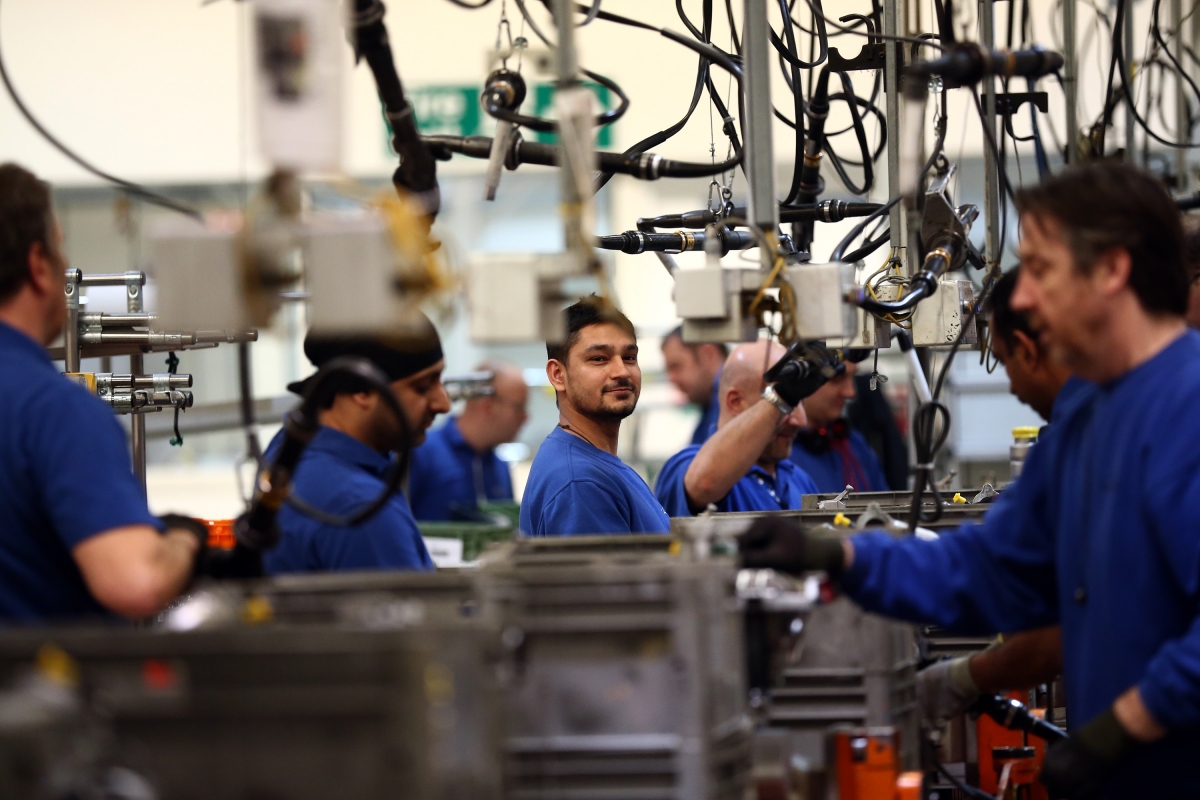Britain's car manufacturing industry is 'teetering on the edge' and is on track to record its first annual decline since the financial crisis, after recording the largest drop in domestic demand in six years last month.
According to data published by the Society of Motor Manufacturers and Traders (SMMT), the number of new car registrations fell 4.6% year-on-year to 161,490 last month, leaving the total in the first 11 months of the year 2% lower than in the corresponding period a year ago.
The decline was driven by a 28.1% drop in domestic demand in November, which marked the largest drop in domestic demand since September 2011 and left production for UK consumers 9% down in the year to date.
Should the negative trend linger into December, Britain's car manufacturing sector would face its first decline in annual production since 2009, when production plummeted 31% to 999,460 cars.
While exports grew 1.3%, November marked the fourth consecutive month of decline in domestic demand. The SMMT suggested the government bears the lion's share of responsibility for the ongoing slump.
"Brexit uncertainty, coupled with confusion over diesel taxation and air quality plans, continues to impact domestic demand for new cars and, with it, production output," said Mike Hawes, chief executive of the SMMT.
"Whilst it is good to see exports grow in November, this only reinforces how overseas demand remains the driving force for UK car manufacturing. Clarity on the nature of our future overseas trading relationships, including details on transition arrangements with the EU, is vital for future growth and success."
Alex Buttle, director of car buying comparison website Motorway.co.uk, said Britain's reliance on exports was highly worrying, given the impasse in the negotiations with the EU.
"That is probably more worrying than faltering demand, as right now we have no EU trade agreement and zero clarity over trading agreements with countries outside the EU," he explained.
"The UK car industry is teetering on the edge, and the economic landscape is unlikely to improve in 2018 with Brexit uncertainty ramped up to another level."
The car industry has been a vocal critic of the Brexit vote and has repeatedly urged the government to provide clarity over Britain's future trade relationship with the European Union. Tony Burke, Unite assistant general secretary, said the figures proved Britain's car industry was "stuck in the slow lane" due to Brexit-related uncertainties and falling wages.
"The continued falling demand in the UK market because of Brexit uncertainty and falling wages is yet more evidence of the government's economic incompetence," he said.
"When other economies around the world are motoring ahead, the UK is stuck in the slow lane hobbled by the biggest squeeze in wages since the Napoleonic era. Meanwhile, uncertainty around Brexit is leaving motor manufacturers stalling on the investment needed to maintain Britain's world leading status in car making.
"The motor industry is the jewel in the UK's manufacturing crown, sustaining communities with decent well-paid jobs. Government ministers need to rid themselves of their economic complacency and tackle falling incomes, which are putting people's wallets and the UK economy into reverse."


